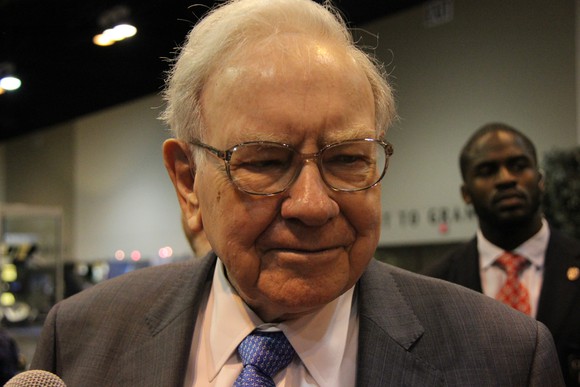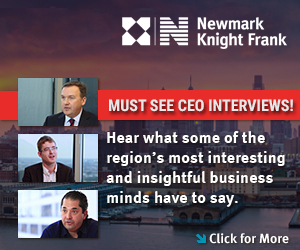The secrets of success for many of the world's top CEOs really aren't that secret. And the keys to how they achieved success can often be applicable for every person regardless of career stage.
That's certainly the case with the following five CEOs: Facebook's (NASDAQ:FB) Mark Zuckerberg, Berkshire Hathaway's (NYSE:BRK-A) (NYSE:BRK-B) Warren Buffett, PepsiCo's (NYSE:PEP) Indra Nooyi, Salesforce.com's (NYSE:CRM) Marc Benioff, and NVIDIA's (NASDAQ:NVDA) Jen-Hsun Huang. Here are five lessons you can learn from these tremendously successful CEOs.

IMAGE SOURCE: GETTY IMAGES.
Mark Zuckerberg: Have a vision and stick with it
Facebook founder and CEO Mark Zuckerberg was asked in 2016 about the top traits in successful leaders. His No. 1 response was to have a specific vision. Zuckerberg certainly had a vision when he started Facebook. Just as important, he stuck with that vision.
Multiple companies tried to buy Facebook over the years. Zuckerberg turned them all down. His vision for Facebook was and is "to make the world more open and connected." Despite multiple lucrative offers, Zuckerberg felt the best way to achieve that vision was to remain independent.
This idea applies to those beginning their careers and those who have been in the workplace for years. Decide what it is you want to accomplish for yourself or for your company, and don't deviate from it.
Warren Buffett: Surround yourself with a great team
Warren Buffett is best known as a legendary investor. However, he has also been the successful CEO of Berkshire Hathaway for more than 50 years. There are plenty of lessons to learn from Buffett, but perhaps the most important one from his tenure as CEO is to surround yourself with a great team.
In his annual letter to shareholders, Buffett routinely praises the managers of the companies that Berkshire Hathaway owns. It doesn't take him long in his letters to recount the success stories of executives who have created value for shareholders. Those managers tend to be very loyal to Berkshire, staying with the company for years. Of course, probably the best example of Buffett's surrounding himself with great people is his longtime business partner, Charlie Munger.
Regardless of where you are in your career, this lesson from Buffett is a good one. If you don't have control over the team at work, surround yourself with people outside of work who can help you grow and achieve your goals. If you're an entrepreneur, remember that your success depends on how successful your team can be.

IMAGE SOURCE: THE MOTLEY FOOL.
Indra Nooyi: Develop a "hip-pocket skill"
Ask Pepsi CEO Indra Nooyi how she became successful, and her answer will probably be that she developed a "hip-pocket skill" -- something she was known for being very good at doing. In Nooyi's case, that skill was to simplify the complex, whatever the issue might be.
Nooyi became known within Pepsi for having an uncanny ability to make complicated things simple. On multiple occasions as she was rising through the company's ranks, she was assigned tasks because of this relatively unique ability.
A "hip-pocket skill" in effect becomes your unique selling point as an employee or vendor. It doesn't have to be the same as Indra Nooyi's, though. Identify a specific talent that you have and develop it as much as you can.
Marc Benioff: Adapt and evolve
Forbes magazine rates Salesforce CEO Marc Benioff as "the decade's top innovator" in 2016. That's a high honor, considering the level of innovation introduced over the past several years. The key lesson from Benioff's career relates to his innovation: adapt and evolve.
Benioff was a pioneer in software-as-a-service. He jumped into cloud computing early on. Benioff's latest major focus is on artificial intelligence. With every major technology change that comes along, Benioff leads Salesforce to adapt and integrate the change into the company's strategy.
You don't have to be in technology, though, to do the same thing. Adapting and evolving requires being aware of the big changes that are occurring that affect you directly. Once you identify those changes, you can determine what you need to do differently to best take advantage of them.
Jen-Hsun Huang: Learn from failure
When The New York Times asked Jen-Hsun Huang what it's like to work at NVIDIA, the CEO mentioned two core values. First, he said employees needed to have "the tolerance to take risks and the ability to learn from failure." The second core value was similar to the first: Have intellectual honesty -- "the ability to call a spade a spade, to as quickly as possible recognize that we've made a mistake, that we've gone the wrong way, and that we learn from it and quickly adjust."
Huang has lived out these core values. In the mid-1990s, NVIDIA almost went bankrupt. Its NV1 chip wasn't successful. The company was forced to lay off half of its employees. Huang learned from the mistakes, though, and led NVIDIA to launch another chip two years later that avoided the problems of the first chip.
You'll have some failures along the way no matter what career path you take. If you learn from them, though, they can become stepping stones to an even greater success.






